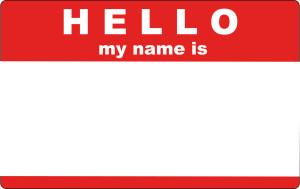submitted by jwithrow.
Labels are divisive.
We have been conditioned by government education and mass-media to put labels on others and then treat them according to what that label means to us. This is group-think and it is antithetical to the philosophy of individual liberty.
Here is how group-think works:
We place someone in a particular category, label them, and then we attribute specific qualities to that person based on that label. This person may or may not actually share all of these qualities.
So we label that person based on their ethnic background or their political philosophy or their profession or their collegiate affiliation or whatever else. And we then assume that they hold all of the values that we associate with that particular group.
Here’s the problem: group-think fosters judgment and division and it reinforces the collectivist mentality that individuals are subservient to groups (governments, corporations, institutions, etc.).
We think that this judgment and division is misplaced.
We are not groups; we are people. Individuals. We may differ in certain philosophies or preferences but we are all far more similar than we are different.
Personhood is the only label that matters.
The fact is that we will never agree on everything. Try getting five friends to agree on where to go for dinner and see if this is not true. But we are all people and as individuals we inherently hold tremendous value that does not dissipate simply because we may hold different beliefs. And because we hold this inherent value as individuals, we should not allow groups to tell us what to think or how to feel. It’s up to us to decide for ourselves.
We would also suggest that our differences in opinion should not deter us from honest friendship. It is foolish to squabble with family members and friends over particulars and allow these particulars to destroy relationships. And we would suggest that it is destructive to see ourselves as a member of a certain group and then think that we are therefore diametrically opposed to another group. We do not want others to impose their labels upon us so we should not impose our labels on others. It can be appropriate to offer advice or present alternative ideas to someone with differing values but this is much different than trying to impose our values upon someone else. Remember, true change can only come from within, never from without.
A wise man once said “Do unto others and you would have them do unto you.”
Sounder advice has never been given.




